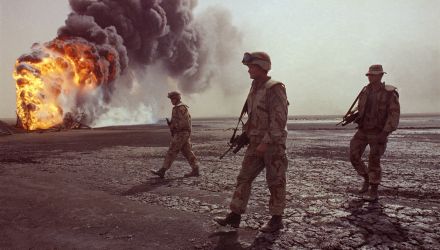On September 6, 2013 at the G-20 summit in St. Petersburg, Germany broke rank with the US, Britain, France, Spain, and Italy by refusing to sign a joint declaration that condemns the August 21 chemical weapons attack in Syria and calls for a “strong international response.” By the next day, as it became clear that Germany was the sole European Union heavyweight to abstain from signing the declaration, Merkel and Westerwelle hastily reversed this decision and added Germany to the list of signatories.
In public statements over the weekend that followed, Merkel attributed Germany’s delayed support to her desire to build a common European Union position on the issue before committing to the declaration. If this is an accurate depiction of intent, it suggests that Merkel overestimated her own influence on her Europeans counterparts. More probable is that Germany’s delayed response was simply a miscalculation, and another example of the equivocating, reactionary foreign policy that has characterized the Merkel-Westerwelle tenure.
As the world’s fourth largest economy, with the ninth largest military budget and the third highest foreign aid budget, Germany’s economic might and stability throughout the Eurozone crisis have elevated her to the status of a global power, with the corresponding ability to influence world events. Yet the CDU-FDP coalition government that ruled the country for the past four years has demonstrated a deep reluctance to assume this role.
From Germany’s abstention at the 2011 UN Security Council vote authorizing air strikes in Libya to Merkel’s inability to make progress on her vision of a “political union” in Europe, German foreign policy seems to consist of little beyond oblique rhetoric and a steadfast commitment to avoiding risk. The German “position” on the use of chemical weapons in Syria – which as of today, is to support a “clear common answer” by the international community while simultaneously avowing that there will be no German military engagement, and to promote a role for the United Nations while acknowledging that expectations of a successful UNSC proposal “shouldn’t be too high” – amounts to a confusing hedge. In response to Russia’s surprising plan to place Syrian chemical weapons stores under international control, Merkel once again prevaricated, claiming that Germany will “push for that road [the Russian plan],” however will do so only if the plan is “followed by action.”
This series of halting response to the Syria crisis not only strains the German-US transatlantic relationship, it also reinforces a portrait of Germany as an inward-looking country, whose relentless focus on economic prosperity comes at the expense of global leadership. Merkel’s equivocation has been thoroughly, and rightfully, criticized by the German media and the opposition SPD party.
Formulating and sticking to a cogent position on Syria is one of several constructive steps Merkel should take to bolster Germany’s foreign policy should she win a second term on September 22 as widely expected. In addition, Germany should lend full diplomatic support to the new Russian proposal on securing chemical weapon stockpiles. Although the relationship between Merkel and Putin is certainly not cozy, it is at least functional, and the two countries have recently found common ground in their emphasis on the importance of the UN’s role in this debate. Consequently, Germany is well-positioned to mediate what will assuredly be fraught conversations between the US and Russia about the actualization of this plan. Finally, given the uncertainties surrounding the Kremlin’s intentions and the prospects of this new proposal succeeding, Germany should be prepared to offer tangible support to any future international response. This could, for example, take the form of supplying military equipment, intelligence, or spearheading a concerted diplomatic campaign in Russia.
Most important, however, is what Germany should do once the federal elections are safely behind: finally embrace her relatively new, and clearly still uncomfortable, role as not just a European, but a global powerhouse. In her customary New Year’s address this year, Merkel quoted the Greek philosopher Democritus: “Courage marks the beginning of action, fortune the end,” she said. After years of ambivalence, it is time for the next generation of German leadership to demonstrate this courage.
Harrison, Lauren. “Germany’s Syria Gaffe.” September 10, 2013



